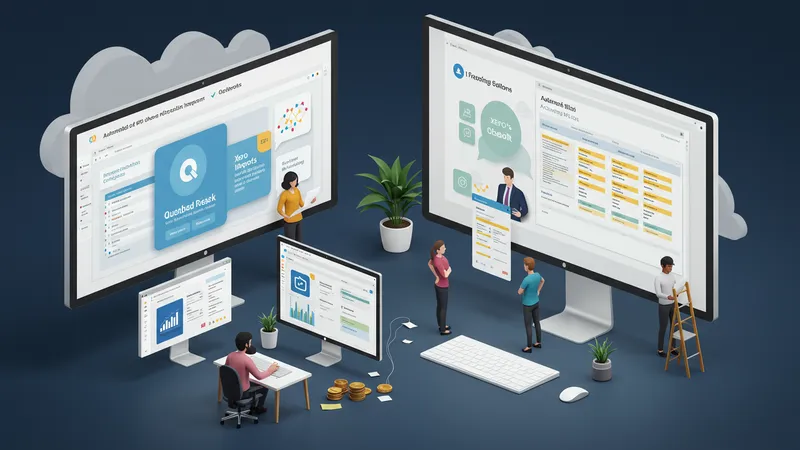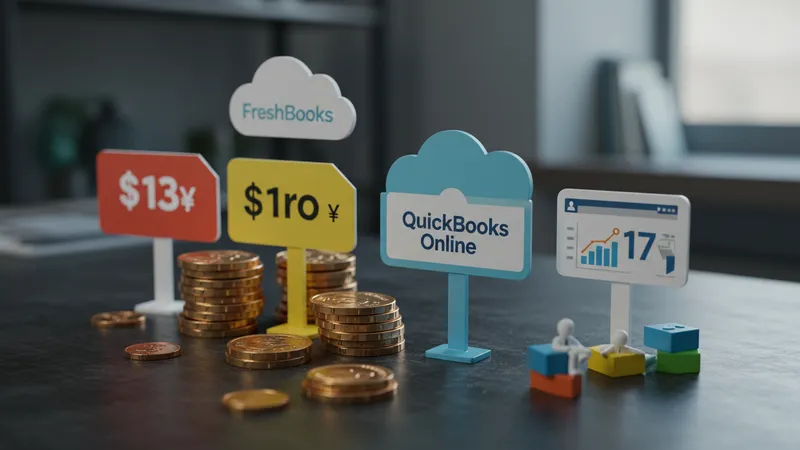

Modern organizations increasingly rely on digital solutions to oversee their financial activities. Rather than using static spreadsheets or manual ledgers, companies now leverage accounting platforms that reside in the cloud. These tools enable finance teams to access and manage budgets, invoices, payroll, and reporting from any device connected to the internet. As a result, financial oversight becomes more agile, enabling stakeholders to keep pace with a rapidly changing business environment.
Cloud-based accounting systems replace traditional desktop-based software, offering streamlined access and seamless updates. By hosting data remotely, these systems facilitate real-time collaboration, secure backups, and the automation of routine bookkeeping tasks. For many businesses, this transition means greater efficiency, improved data visibility, and the reduction of human errors across core accounting cycles.

One of the standout advantages of leading cloud accounting platforms is automation. For example, platforms like Xero and QuickBooks Online provide automated bank feeds, recurring invoicing, and smart reconciliation tools. This reduces the time spent on manual entry, freeing up resources for more strategic financial tasks and planning activities that might otherwise be neglected.
Cloud-based systems also redefine accessibility. Instead of being tied to an office computer, users can log in securely from anywhere in the world, provided they have an internet connection. This level of flexibility is especially beneficial for distributed teams or businesses managing multiple office locations. FreshBooks, for instance, is designed with mobility in mind, supporting invoicing and expense tracking from mobile devices.
Cost structure and flexibility represent another essential benefit. Rather than committing large upfront investments in software licenses and server hardware, businesses using cloud accounting solutions typically subscribe to monthly or annual plans. This operating expense model allows organizations to scale their accounting capabilities as their needs evolve. Leading platforms offer a variety of pricing tiers, with options suitable for solo entrepreneurs and large enterprises alike.
Data security is a major priority for operational confidence. Cloud accounting providers deploy robust encryption, two-factor authentication, and routine data backup protocols to safeguard sensitive information. These safeguards often surpass what small and mid-sized organizations could implement on their own, increasing trust in adopting these tools for mission-critical financial management.
These early insights only scratch the surface of digital accounting platforms’ transformative potential. The deeper details reveal even more valuable insights ahead—exploring features, pricing, and practical use cases that further illuminate their impact.
Cloud accounting tools prioritize automation to save time and reduce repetitive tasks. For instance, QuickBooks Online offers bank reconciliation that matches transactions automatically, reducing manual review time. Xero’s direct bank feed ensures accurate, daily-imported data, while FreshBooks automates recurring billing for subscriptions. These features relieve finance professionals from monotonous work and yield more reliable transaction records.

Another feature shaping cloud solutions is real-time collaboration. Users can assign distinct access levels, enabling internal teams, bookkeepers, or financial advisors to view or update records as needed. This collaborative functionality streamlines month-end closing and audit processes. As a result, financial statements are more accurate and generated with far less delay compared to using legacy software restricted to single-user access.
Expense tracking and budget management tools in these platforms make a significant difference. With platforms like Xero and FreshBooks, businesses can categorize expenditures, attach receipts via mobile devices, and set budget alerts. QuickBooks Online’s reporting suite enables customizable dashboards, providing instant insights into profitability, cash flow trends, and unpaid invoices. These dynamic overviews replace the need for time-consuming, manual report generation.
Integration capabilities extend these platforms’ value even further. Most cloud accounting systems feature application programming interfaces (APIs) or built-in integrations with payroll, CRM, payment processing, and ecommerce platforms. For example, Xero seamlessly connects with third-party payroll and inventory solutions, while FreshBooks pairs easily with payment gateways to expedite customer collections. These integrations collapse the gap between accounting and operational systems, driving efficiency on every front.
Affordability and scalability are hallmarks of cloud accounting services. Xero offers plans starting around $13 USD per month for basics, with higher tiers providing advanced analytics, multi-currency support, and project management. QuickBooks Online features a similar structure, allowing small startups to begin with an economical plan and expand features as revenue and complexity grow.

FreshBooks has distinguished itself by targeting freelancers and service-based businesses. Its base pricing starts near $17 USD per month, with additional features and users available at higher subscription levels. This modular approach makes it possible to tailor solutions closely to a company’s current requirements, minimizing unnecessary expenditure on unused features.
Larger organizations benefit from enterprise add-ons and customizability. Premium versions of platforms like QuickBooks Online provide enhanced reporting, advanced permissions, and dedicated account management. Xero also offers integrations and 24/7 customer support at its higher pricing levels, fostering confidence that complex needs are covered as organizations scale.
Most cloud-based accounting platforms provide free trials or demo access, helping companies evaluate fit and functionality before making a commitment. This try-before-you-commit model underscores transparency and empowers even small businesses to confidently transition from legacy tools to a modern, cloud-enabled accounting environment.
Financial information is among any organization’s most sensitive data, making security a critical concern for cloud adoption. Providers like QuickBooks Online and Xero deploy end-to-end encryption, securing data both in transit and at rest. This approach minimizes risks of data breaches and unauthorized access, even when users connect from different devices and locations.

Regulatory compliance is built directly into many cloud platforms, supporting requirements such as audit trails, electronic invoicing standards, and data retention policies. For example, Xero complies with major international financial reporting frameworks, while QuickBooks Online offers tools to automate tax calculations and report filings across multiple jurisdictions.
Access control features strengthen data privacy. Businesses can set granular permissions—restricting users to specific functions like invoicing, payroll, or general ledger management on platforms like FreshBooks. Advanced audit logs provide traceability, making it easier to track changes and detect anomalies that might impact records’ integrity or compliance status.
Frequent automated backups add another layer of protection. In the event of accidental deletions or system failure, providers can restore critical financial records quickly. This resilience, combined with geographically distributed data centers, ensures continuity of financial operations and instills trust in cloud platforms for mission-critical accounting.
Real-time visibility is crucial for informed financial decisions. Cloud-based accounting platforms empower managers and business owners to check forecasts, track spending, and monitor cash flow wherever they are. These insights drive faster and better-timed actions, supporting agile responses in dynamic business environments.

Improved collaboration extends beyond the finance department. Cloud-based systems support joint work between accountants, auditors, business partners, and consultants without requiring physical document transfers. For example, an accountant in one city can close monthly books while managers review results elsewhere, improving efficiency and reducing downtime due to versioning issues or miscommunication.
Cloud accounting supports scalability seamlessly. As a business grows, its financial operations may include new branches, cross-border transactions, or varying tax obligations. With scalable cloud tools like Xero and QuickBooks Online, adding users or modules is frictionless, keeping financial data unified even as complexity increases.
Finally, these systems future-proof operations. Frequent updates deploy new features and compliance fixes with minimal interruption, helping companies stay ahead of regulatory shifts, evolving financial standards, and technological trends. By leveraging the cloud, businesses maintain a competitive edge and free their teams to focus on strategic goals rather than being weighed down by administrative burdens.